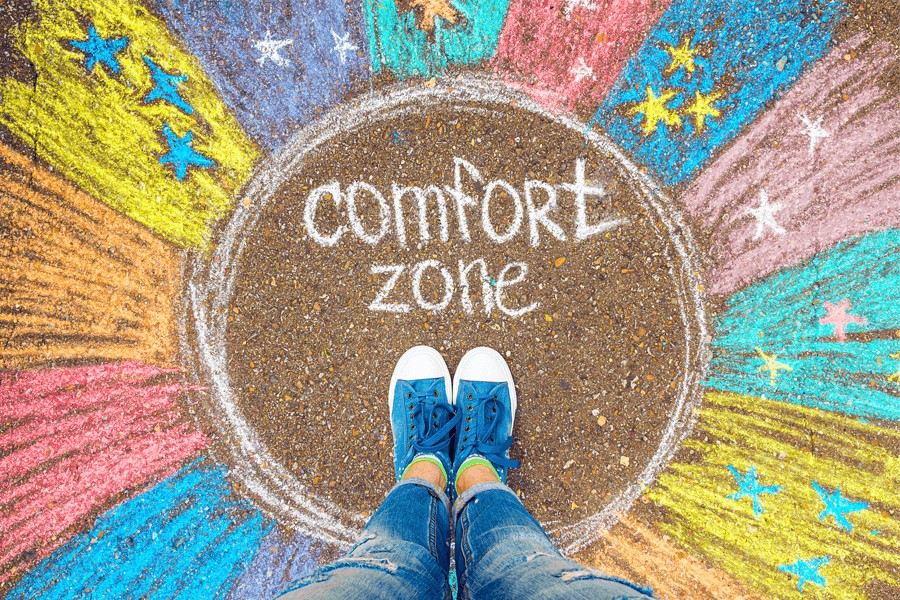Let’s be real — guilt is a tricky emotion. Most of us feel it when we’ve done something wrong, but sometimes, without even realizing it, we use guilt to get the attention or support we’re craving. Have you ever said something like, “I guess nobody cares about me”, or, “I always do everything for you, and you never do the same for me”? If so, you might be using guilt to get someone’s attention.
While this might seem like it works at the moment, using guilt to draw people in is a quick fix that can actually harm your relationships and make you feel worse in the long run. It doesn’t foster trust or genuine connection and can even make you feel like you’re manipulating people without even meaning to.
In this blog, we’ll explore why using guilt for attention isn’t healthy, how to catch yourself when you’re doing it, and what you can do instead. Plus, we’ll dive into some real-world examples to make everything easier to spot and understand. Ready to break this habit? Let’s get into it!
Why Guilt Tripping is Harmful (and How It Can Backfire)
Using guilt to get someone’s attention might seem harmless at first, but it can actually do a lot of damage — both to you and the people around you. Here’s why it can be a problem:
- It Breaks Down Trust: Trust is the foundation of any strong relationship. When you use guilt to get attention, it erodes that trust. The other person may start to feel manipulated or resentful, even if they don’t say so outright. Over time, this can cause a rift that’s hard to fix.
- It’s Emotionally Exhausting: Using guilt to get what you need isn’t just tiring for the person on the receiving end — it’s draining for you, too. Instead of dealing with the issue directly, guilt creates a cycle where both people end up feeling emotionally drained and disconnected.
- It’s Manipulative (Even If You Don’t Mean It to Be): Guilt puts pressure on others to act in a way that meets your emotional needs, often making them feel like they don’t have a choice. This isn’t fair, and over time, it can lead to an unbalanced dynamic where one person is always giving more than they want to.
- It’s a Band-Aid, Not a Solution: Sure, guilt might get you a quick response or some short-term attention, but it doesn’t fix anything long-term. If you’re not addressing the real issue behind why you feel the need for attention, you’ll likely find yourself feeling frustrated and unfulfilled.
- It Weakens Genuine Connection: When you use guilt, the attention you get is often out of obligation rather than genuine care or understanding. This diminishes the authenticity of the connection and leaves both parties feeling unsatisfied.
- It Hurts Your Own Self-Worth: Constantly using guilt can make you feel like the only way to get attention is by making others feel bad. This can chip away at your self-esteem and make you feel less worthy of love and support that’s freely given.
How to Spot When You’re Using Guilt Manipulation
The first step to changing this habit is noticing when you’re doing it. Guilt-based attention-seeking is often unconscious, so it’s easy to fall into without realizing it. Here’s how you can start to recognize it in yourself:
- Pay Attention to Your Words: What are you saying when you’re feeling hurt or neglected? If you’re saying things like, “I guess you don’t care about me”, or “I always do everything for you, and you never do anything for me”, you might be using guilt. These phrases are tell-tale signs that you’re trying to get attention in an unhealthy way.
Example: Let’s say you’ve had a bad day, and your partner is busy. Instead of directly asking for support, you say, “I guess I’ll just handle it all by myself like always”. This might make your partner feel obligated to stop what they’re doing to help, even if they’re overwhelmed too. This creates tension and doesn’t actually address your needs. - Notice Your Emotional Triggers: Ask yourself what emotions are driving your guilt-based reactions. Is it fear of rejection, loneliness, or anxiety about being abandoned? Once you know the root cause, it’s easier to catch yourself before falling into the guilt trap.
Example: A friend cancels plans, and instead of accepting their reason, you feel rejected and say, “I knew you’d find a way to blow me off”. Instead of expressing your disappointment in a healthy way, you’re pushing your friend away by making them feel guilty. - Be Honest About What You’re Looking for: What response are you hoping to get from your guilt-laden comments? Are you trying to get attention, validation, or an apology? If you’re using guilt to force a specific reaction, it’s a sign you need to rethink your approach.
Example: Maybe you say to a coworker, “It’s fine, I’ll just stay late and finish everything since no one else wants to help”. The guilt you’re applying might make your colleagues offer assistance, but it’ll feel forced rather than genuine. - Look for Patterns: Do you find yourself relying on guilt in certain relationships more than others? Is there a pattern where you feel the need to use guilt to get attention from specific people, like a friend, partner, or family member? These patterns can highlight areas where your communication habits need attention.
Example: If every time your sibling doesn’t text you back quickly, you say, “I guess I’m just not that important to you”, that’s a pattern of guilt-based behavior. Noticing this pattern gives you the chance to make a change. - Reflect on How You Feel Afterward: After you make a guilt-inducing comment, how do you feel? If there’s a lingering sense of discomfort or regret, that’s a red flag. You might get the attention you wanted, but it doesn’t feel good because it wasn’t freely given.
Example: You might say something to make someone feel guilty, and they give you attention in return. But the interaction feels hollow because it wasn’t genuine — leaving you feeling worse than before.
Breaking the Guilt Tripping Habit: Healthier Ways to Get Attention
Now that you know how to spot guilt-seeking behavior, it’s time to swap it out for something better. Here are healthier ways to ask for the attention or support you need — without the guilt trip:
- Ask Directly for What You Need: Instead of hinting or using guilt, practice clear, direct communication. If you’re feeling lonely, ask for connection! For example, instead of saying, “You never spend time with me”, try, “I miss you, and I’d love to spend some time together soon”.
Example: If you’re feeling distant from a friend, don’t say, “I guess you don’t care anymore”. Instead, say, “I’ve noticed we haven’t hung out in a while, and I really miss our time together. Can we plan something soon”? - Use “I” Statements, Not “You” Statements: “You” statements can sound accusatory and make the other person defensive, while “I” statements focus on how you feel. For example, instead of saying, “You never listen”, try, “I feel unheard when we don’t communicate well”.
Example: After a stressful day, instead of, “You don’t care that I’m upset”, try, “I’m feeling really overwhelmed and could use some support right now”. - Practice Mindfulness: Mindfulness can help you pause and think before you react. When you feel the urge to use guilt, take a breath and ask yourself why. Are you expressing your true feelings, or are you trying to control the other person’s response?
Example: You’re in a disagreement with your partner, and you’re about to say, “I guess I’m the only one who cares about us”. Pause, reflect, and instead say, “I’m feeling really hurt, and I want to talk about how we can fix this”. - Work on Emotional Independence: Emotional independence doesn’t mean cutting yourself off from others. It means recognizing that your emotions are your responsibility, and you don’t need to rely on making others feel guilty to meet your needs. You can ask for support, but you’re also okay if someone can’t give it to you at that moment.
Example: Instead of saying, “You never make time for me”, say, “I’m feeling a bit neglected, but I know you’re busy. Could we schedule some time to hang out when things calm down”?
Conclusion: Breaking the Guilt Cycle
Using guilt to get attention might feel like a quick fix, but it comes with a cost — both to your relationships and your own well-being. By becoming aware of these patterns, learning to recognize when you’re falling into the habit, and practicing healthier communication, you can create stronger, more fulfilling connections.
Remember, everyone has moments where they feel neglected or unheard. What matters is how you choose to express those feelings. By choosing direct, kind, and mindful communication, you’ll foster relationships built on trust, mutual respect, and genuine care — without the guilt.






